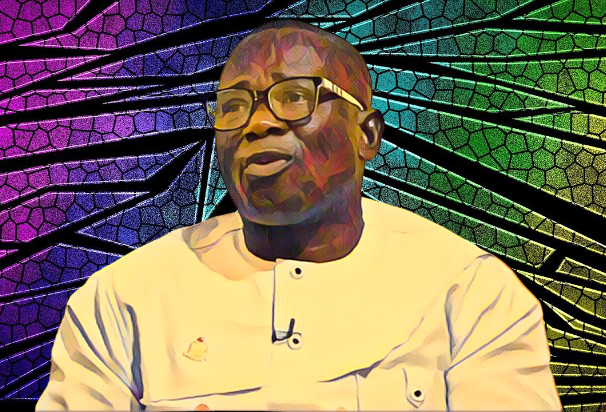In a move that has stirred significant controversy and debate within Ghana’s education sector, the Fair Wages and Salaries Commission (FWSC) has openly criticized the leadership of the nation’s teacher unions for what it deems a failure to adhere to the country’s established labor laws before embarking on a nationwide strike. The teacher unions in the spotlight include the Ghana National Association of Teachers (GNAT), the National Association of Graduate Teachers (NAGRAT), and the Coalition of Concerned Teachers-Ghana (CCT-GH). This conflict underscores the tensions between the government’s administrative bodies and educators, highlighting the complexities of labor disputes within the public sector.
The crux of the FWSC’s argument, articulated by its Chief Executive, Benjamin Arthur, centers on the unions’ decision to initiate industrial action without prior notification to key stakeholders, including the FWSC itself and the National Labour Commission. Speaking on JoyNews’ PM Express, Arthur expressed his dismay at the situation, describing it as an “ambush” that caught all involved parties by surprise. This action, according to Arthur, represents a significant departure from the necessary protocols that govern labor disputes, raising questions about the legality and governance of such actions within the country.
Arthur’s comments shine a light on the broader issues at play, including the governance of labor disputes and the potential implications of strikes that occur without adherence to established protocols. His analogy to the private sector, where such unexpected strikes could lead to chaos, underscores the potential for disruption and the need for orderly and regulated approaches to labor disagreements.
This dispute arises against the backdrop of the Ministry of Education and the Ghana Education Service’s delay in addressing the conditions of service for teachers. The teacher unions have highlighted their dissatisfaction with the negotiation process for a new collective agreement, which they argue should have been completed by February 29, 2024. Their grievances include a range of issues related to their working conditions and compensation, reflecting broader concerns about the welfare of educators in Ghana.
Complicating this issue further is the government’s ambitious Ghana Smart School project, aimed at distributing iPads to students in over 500 public senior high schools. This initiative, designed to leverage technological innovations for e-learning and to prepare students for the challenges and opportunities of the 4th Industrial Revolution, contrasts sharply with the ongoing disputes with teachers. While the project signifies a step forward in modernizing education and embracing digital learning, it also highlights the need for the government to address the concerns and needs of educators who are pivotal to the success of such initiatives.
The nationwide strike declared by the three teacher unions on March 20 has significant implications not only for the education system but also for the thousands of students who rely on public schools for their education. As students are introduced to new technologies and learning platforms through the Ghana Smart School project, the absence of teachers from classrooms underscores the urgent need for resolution and dialogue.
This situation calls for a balanced approach that recognizes the rights and needs of teachers while ensuring that the processes for resolving disputes are respected and followed. The importance of dialogue cannot be overstated, as both the government and the teacher unions need to engage in constructive discussions to address the underlying issues that have led to this impasse. It is essential for all parties to work towards a resolution that honors the commitments made to educators while also advancing the educational opportunities for Ghana’s youth.
As the teacher unions and the government navigate this challenging period, the ultimate goal should remain clear: to create an education system that is fair, sustainable, and capable of providing quality education to all students. This will require not only addressing the immediate concerns that have led to the strike but also undertaking broader reforms to ensure that teachers feel valued and supported in their vital roles. The path forward will likely involve compromises and concessions from both sides, but the potential rewards—a more robust and equitable education system—justify the efforts required to reach a resolution.
The ongoing strike and the tensions between the teacher unions and the FWSC reflect deeper issues within Ghana’s education sector and labor relations. This moment presents an opportunity for all stakeholders to reflect on the importance of fair labor practices, effective communication, and the central role of teachers in shaping the future of the nation. As discussions continue and efforts are made to resolve the current dispute, the hope is that a renewed focus on collaboration and mutual respect will emerge, leading to positive outcomes for teachers, students, and the broader educational landscape in Ghana.
In sum, the confrontation between Ghana’s teacher unions and the FWSC over the recent strike highlights critical issues surrounding labor laws, negotiation processes, and the welfare of educators. As the country strives to navigate these challenges, the collective focus must remain on ensuring that the education system serves the needs of both its educators and its students, paving the way for a future where technological advancements and quality teaching go hand in hand. The resolution of this dispute will not only shape the immediate landscape of education in Ghana but also set precedents for how labor disputes are managed and resolved in the public sector, emphasizing the need for adherence to legal frameworks, open communication, and a shared commitment to the common good.





4 comments
I don’t think the title of your article matches the content lol. Just kidding, mainly because I had some doubts after reading the article.
Your article helped me a lot, is there any more related content? Thanks!
Thank you for your sharing. I am worried that I lack creative ideas. It is your article that makes me full of hope. Thank you. But, I have a question, can you help me?
Thank you for your sharing. I am worried that I lack creative ideas. It is your article that makes me full of hope. Thank you. But, I have a question, can you help me?